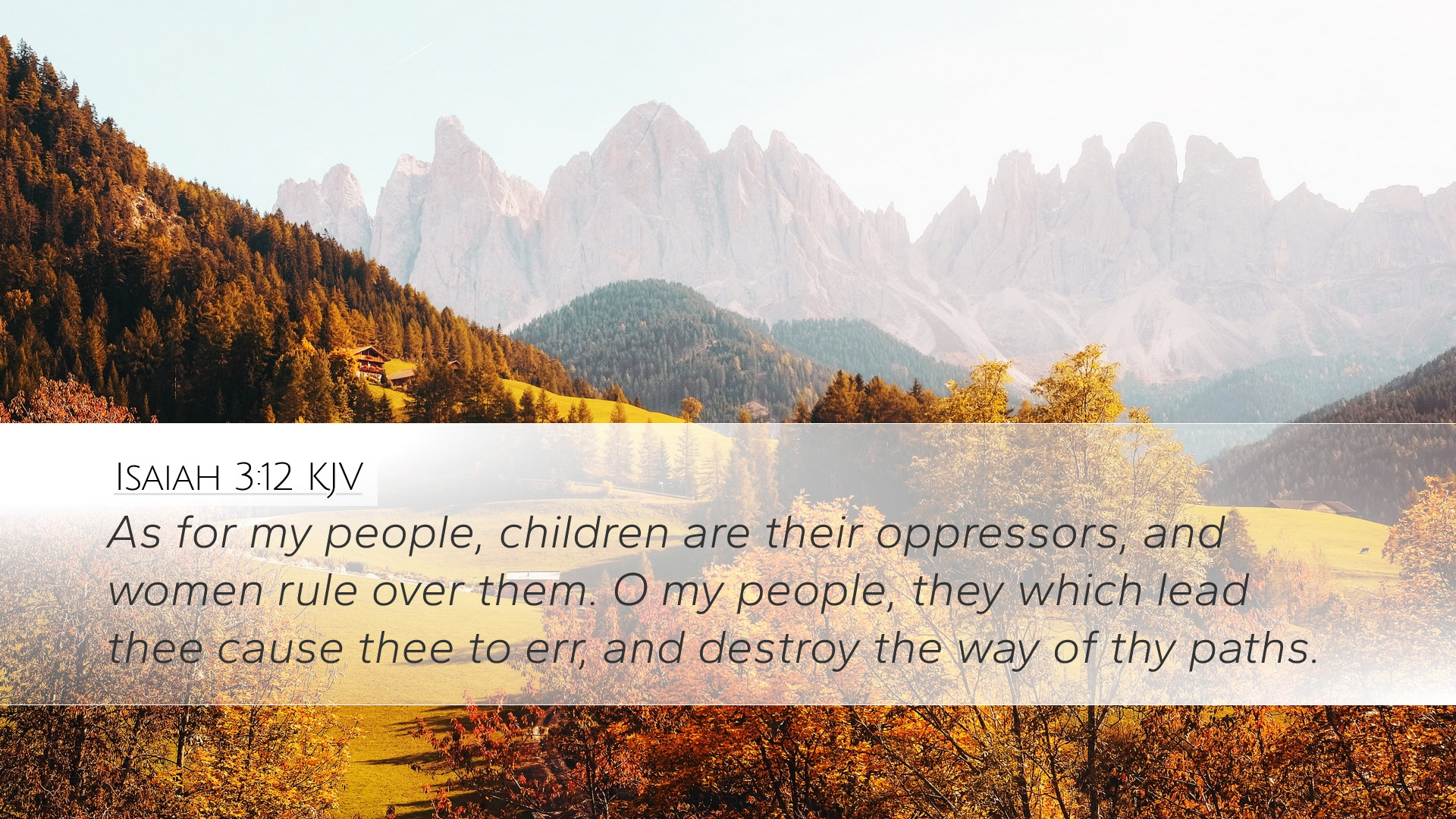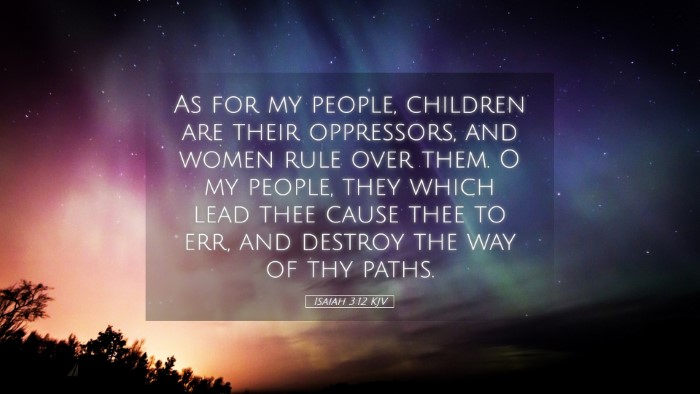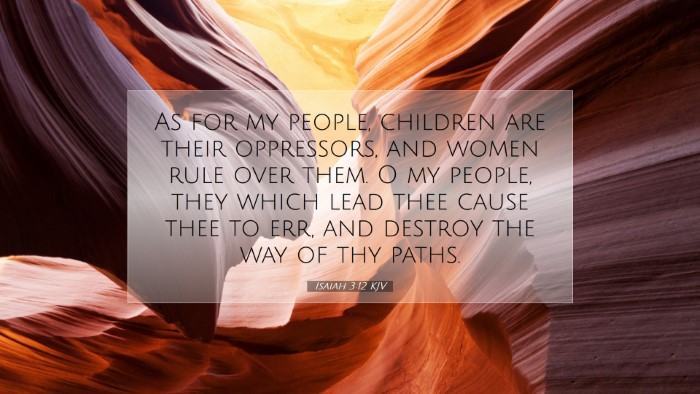Commentary on Isaiah 3:12
Isaiah 3:12 states: "As for my people, children are their oppressors, and women rule over them. O my people, they which lead thee cause thee to err, and destroy the way of thy paths."
Introduction
This verse from the book of Isaiah presents a striking picture of societal breakdown, illustrating the consequences of moral and spiritual decay. Isaiah prophesies about the impending judgment upon Judah, describing a community plagued by ungodly leadership. Such analysis resonates deeply for contemporary audiences seeking to understand the challenges of leadership and societal values.
Analysis of Key Phrases
The particular phrases in Isaiah 3:12 highlight several critical themes:
- “Children are their oppressors”: This segment indicates a reversal of societal norms, where youth, lacking wisdom and experience, hold undue power over the elders. This perversion reflects the larger theme of folly prevailing over wisdom.
- “Women rule over them”: Here, the text is not a denunciation of women, but rather a sign of societal collapse. The suggestion is not that women in authority are inherently problematic, but that those in power are often unqualified or corrupt, leading to chaos.
- “They which lead thee cause thee to err”: This highlights the grave responsibility that leaders bear. Poor guidance leads the populace away from righteousness and invokes the wrath of God.
- “Destroy the way of thy paths”: This phrase encapsulates the destructive nature of such leadership. Unrighteous leadership leads to the degradation of moral pathways and societal order.
Historical Context
Understanding the historical backdrop of Isaiah's ministry is critical. During Isaiah's time, Judah faced threats from Assyria and internal strife due to poor leadership. The prophet’s message arose amidst a culture increasingly alienated from God due to idolatry and injustice. His warnings were intended to call back a wayward people towards ethical living and alignment with divine will.
Theological Implications
Isaiah 3:12 speaks to the broader theological narrative regarding God's sovereignty and judgment. The following points encapsulate significant theological insights:
- Judgment as a Divine Response: The chaos described serves as a reminder of divine judgment against unfaithfulness. God’s justice addresses both social injustices and the moral failures of leadership.
- The Role of Leadership: Leadership is pivotal in shaping community values. The consequences of ungodly authority extend beyond immediate governance; they affect the spiritual and moral fiber of society.
- Gender Dynamics: The mention of women ruling as a sign of society's downfall invites reflection on contemporary discussions concerning leadership roles, emphasizing the need for godly wisdom over cultural or gender biases.
Commentary Insights
Matthew Henry
Matthew Henry points out that the verse serves as an indicator of a nation's decay when the youth and women assume positions of leadership. He notes that such a scenario reflects a lack of wisdom among the populace, where children, representative of immaturity, dominate the elders.
Albert Barnes
Albert Barnes emphasizes the corrective nature of Isaiah's message. He expounds on how societal authority should lie with those who fear God and dispense justice. Barnes additionally warns that societal decay leads to widespread error, cautioning against placing unqualified individuals in positions of power.
Adam Clarke
Adam Clarke interprets the verse through the lens of historical Israel, linking it to the eventual downfall due to disobedience to God’s covenant. Clarke discusses the critical importance of returning to leadership that honors God, indicating that spiritual decay will yield societal destruction.
Practical Applications
The insights from Isaiah 3:12 can serve as a call to action for modern Christian leaders and communities:
- Seek Godly Leadership: Society must prioritize spiritual maturity over age or gender in leadership. Evaluating leaders based on their faithfulness to God’s principles is essential.
- Promote Wise Counsel: Churches and communities are encouraged to raise up leaders that embody wisdom, experience, and a discernible fear of God.
- Reject Moral Relativism: The call is clear: societies must resist the temptation to accept unqualified leadership. A collective return to Biblical principles is necessary for righteous governance.
Conclusion
Isaiah 3:12 presents a sobering look at the effects of failed leadership and moral corruption. As contemporary believers, it challenges us to reflect on the qualities we seek in our leaders and to cultivate a community grounded in wisdom, justice, and a fervent commitment to God. The warnings given through Isaiah remain relevant, encouraging vigilance in both individual and corporate spiritual conduct.


